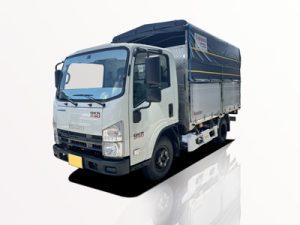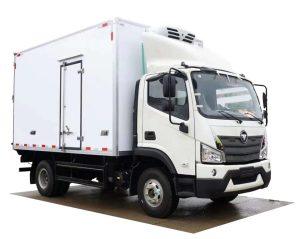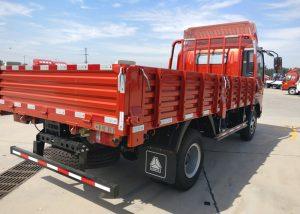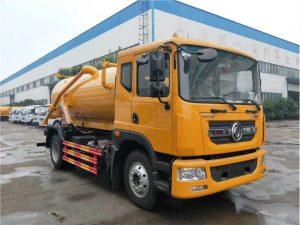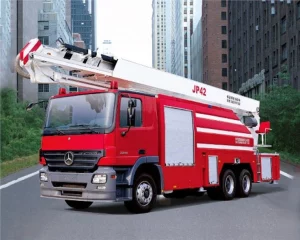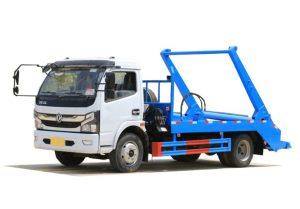Monday to Saturday - 8:00 -17:30
What’s the Difference Between an RV and a Motorhome?
Understanding the distinctions between an RV (recreational vehicle) and a motorhome is essential for anyone considering the world of mobile living. With a plethora of options available for travelers, knowing the nuances can greatly influence your decision on which vehicle type best suits your lifestyle. This article explores the critical differences, advantages, and practical considerations of RVs and motorhomes, ensuring you have all the information needed for your travel adventures.
1. Defining RVs and Motorhomes
1.1 What is an RV?
An RV, or recreational vehicle, is an umbrella term that covers various vehicles designed for recreational travel and camping. RVs can include travel trailers, fifth wheels, and motorhomes. This category is tailored for those who enjoy exploring nature while having the comforts of home at their disposal.
1.2 What is a Motorhome?
A motorhome is a specific type of RV characterized by a built-in engine. Unlike trailers that require a separate vehicle for towing, motorhomes are self-propelled. Motorhomes are further classified into different categories based on their chassis and size.
2. Types of Motorhomes
2.1 Class A Motorhomes
Class A motorhomes are the largest and most luxurious type. They resemble bus-like structures, providing ample living space, high-end amenities, and a full kitchen and bathroom. These are perfect for full-timers and families seeking comfort on the road.
2.2 Class B Motorhomes
Class B motorhomes, often called camper vans, are smaller and more compact. They usually feature a bed, small kitchen, and bathroom facilities. Ideal for couples or solo travelers who prioritize maneuverability and ease of parking.
2.3 Class C Motorhomes
Class C motorhomes are built on a truck chassis, featuring a distinct over-the-cab sleeping area. They provide a good balance of space and drivability, making them popular among families and first-time RV owners.
3. Key Differences Between RVs and Motorhomes
3.1 Mobility
Motorhomes are self-contained and easy to drive anywhere while towing a smaller vehicle is a common practice among RV users for added mobility once parked.
3.2 Cost
The price range of RVs can vary significantly based on type. Motorhomes, being more specialized vehicles, typically come with higher initial cost factors with Class A models being the most expensive.
3.3 Space and Comfort
Motorhomes generally provide higher living space, whereas RVs, especially if they include trailers, might have limited space but allow for flexibility with detachable living areas.
3.4 Amenities
Motorhomes often come with built-in amenities like kitchens, bathrooms, and even entertainment systems. RVs can also offer these features; however, the quality and size may differ based on the model.
3.5 Towing Capability
RVs, particularly trailers, require a separate towing vehicle. In contrast, motorhomes do not need additional vehicles for traveling, although many owners opt to tow a car for convenience.
3.6 Maintenance
Motorhomes may require specific maintenance tailored to their motorized components. RV trailers often have fewer mechanical issues but can require more upkeep regarding the trailer itself.
4. Cost Considerations
4.1 Purchasing a Motorhome vs. RV
| Type | Average Cost |
|---|---|
| Class A Motorhome | $100,000 – $500,000+ |
| Class B Motorhome | $60,000 – $150,000 |
| Class C Motorhome | $50,000 – $150,000 |
| Travel Trailers | $10,000 – $80,000 |
| Fifth Wheel Trailers | $30,000 – $120,000 |
4.2 Insurance and Registration Costs
Insurance rates can vary between RVs and motorhomes, typically higher for motorhomes due to their added coverage needs. Registration can also differ significantly based on vehicle weight and size.
5. Practical Tips for Choosing Between an RV and a Motorhome
5.1 Assess Your Travel Needs
Determine the type of travel you plan to do. If trips are frequent weekend adventures, a smaller motorhome or trailer might be ideal. For extended travel or living, larger Class A motorhomes offer comfort.
5.2 Consider Your Budget
Factor in not just the purchase price but also ongoing maintenance, insurance, and fuel costs associated with either choice.
5.3 Evaluate Available Space
Think about who will be traveling with you. Larger families will require more space, suggesting a motorhome could be the better choice, whereas singles or couples may be fine with a compact travel trailer.
5.4 Test Drive Various Options
Before making a decision, test drive different motorhomes and RVs to assess comfort levels and driving experience. This hands-on approach can greatly influence your final choice.
6. The Training and Licenses Required
6.1 Driving a Motorhome
Most motorhomes can be driven with a standard driver’s license. However, in some states, larger models may require a special class of license for safety reasons.
6.2 Towing a Travel Trailer
Towing a trailer generally requires knowledge of towing dynamics, and it’s wise to practice before committing to your travel trailer choice.
7. The Experience of Living in an RV vs. Motorhome
7.1 Mobile Living
Living in a motorhome often feels more cohesive, with dedicated space for kitchens and bathrooms. Trailers can offer expansive living space but require setting up each time you stop.
7.2 Community and Social Interaction
Both RV parks and campgrounds foster community. However, motorhomes may integrate owners into social circles due to their mobility and shared amenities.
8. Environmental Considerations
8.1 Fuel Efficiency
Motorhomes, particularly Class A models, are typically less fuel-efficient compared to RVs, especially trailers which can be towed by more fuel-efficient vehicles.
8.2 Waste Management
Both vehicle types require responsible waste management practices when using facilities, crucial for environmentally conscious travelers.
FAQs
1. Can I live in an RV or motorhome full-time?
Yes, many individuals and families choose to live full-time in RVs or motorhomes. However, it is essential to research how to manage space and find suitable parking areas.
2. What are the most common types of RVs?
The most common types of RVs include travel trailers, fifth-wheel trailers, and motorhomes (Class A, B, and C).
3. Are motorhomes more expensive to maintain than RVs?
Generally, yes. Motorhomes require specific maintenance for their drivetrains, while RVs may have lower costs depending on the trailer’s features.
4. Can you tow a vehicle with a motorhome?
Yes, most motorhomes can tow a vehicle, which is often recommended for convenience during travel.
5. How do I choose between an RV and a motorhome?
Consider your budget, travel style, space requirements, and whether you prefer the ease of a self-propelled unit or the flexibility of a trailer.
6. What is the average lifespan of an RV and motorhome?
With proper care, most motorhomes and RVs can last 15-20 years, although high-end models or unique builds can last longer with maintenance.


